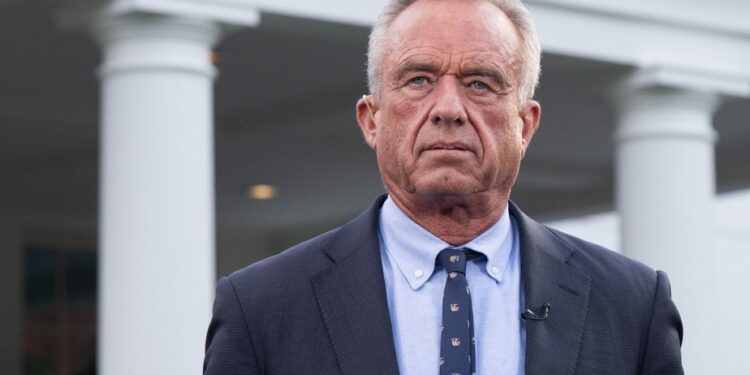(Washington) Experts appointed by Donald Trump’s health secretary voted on Thursday to modify the vaccination recommendations on measles, against the advice of scientists and doctors, with the fear of future changes.
The outcome of this vote, which was held in a highly political context, was particularly scrutinized, the group having been recently reworked by the Minister Vaccinosceptique Robert Kennedy Jr.
Citing the risk of however minimal and inexpensive side effects associated with the combined measuring -combined vaccine, mumps, rubella and chickenpox (RORV), this new advisory committee on vaccination practices (ACIP) has decided to stop recommending it for children under four years of age.
“This is a new strategy aimed at scareing parents,” said Sean O’Leary journalists, specialist in infectious diseases and pediatrics.
The vaccination of this age class against these diseases will now be favored via two separate vaccinations: an injection against the first three diseases (ROR) and a against chickenpox.
Various specialists had nevertheless warned of such a measure which, according to them, would unnecessarily sow doubt and would complicate access to these vaccines.
“Fallaious allegations”
“Any change should strengthen and not weaken the system that guarantees the health of our children,” condemned AFP Syra Madad, epidemiologist.
Especially since the country’s vaccination rates are being downwards from the COVVI-19 pandemic and ranges a return in force of deadly contagious diseases, such as measles. She has already killed three people in 2025 in the country, an unprecedented situation in more than 30 years.
This modification could be followed by others: the committee also looked at the vaccination of newborns against hepatitis B and plans to study Friday the vaccines against COVVI-19.
Photo Alyssa Pointer, Reuters
Dr. Martin Kulldorff, biostatistian
Other vaccinations, especially for pregnant women, will be re -examined later, announced Martin Kulldorff, biostatistian at the head of the group. He opened the meeting on a defensive tone, ensuring that the group was “pro-Vaccin” unlike “fallacious allegations”.
“When there are divergent scientific opinions, only trust scientists who are ready to dialogue and to debate publicly,” he said.
Enough to make Wilbur Chen, infectiologist doctor. “They do not intend to debate by relying on a solid science,” he storms with AFP. “They only repeat erroneous and falsified information”.
“Unjustified doubts”
During the meeting, specialists took turns to present data and reviews on the vaccines examined, urging some to change the recommendations.
“You are based on very limited data and you give a false image of how it works,” thundered Jason Goldman, representing an association of doctors.
Cody Meissner, professor of pediatrics at Dartmouth College and the only dissident voice of the Committee also expressed his reluctance, in particular about a change concerning the vaccine on hepatitis B, which will be voted on Friday.
“This vaccine is absolutely without danger” and, by doing so, “we are going to create new unjustified doubts in the minds of people,” he alerted.
The recommendations that this committee makes in particular dictate the management or not of vaccines by certain insurance and vaccination programs. An important detail in a country where the price of a single vaccine can rise to several hundred dollars.
In this tense context, the American Academy of Pediatrics (AAP) and several States led by the Democratic opposition have recently decided to publish their own vaccination recommendations, believing that those issued by this committee could no longer be deemed reliable.
At the end of June, the freshly reshaped committee had already aroused criticism by promoting anti -vax theses.



